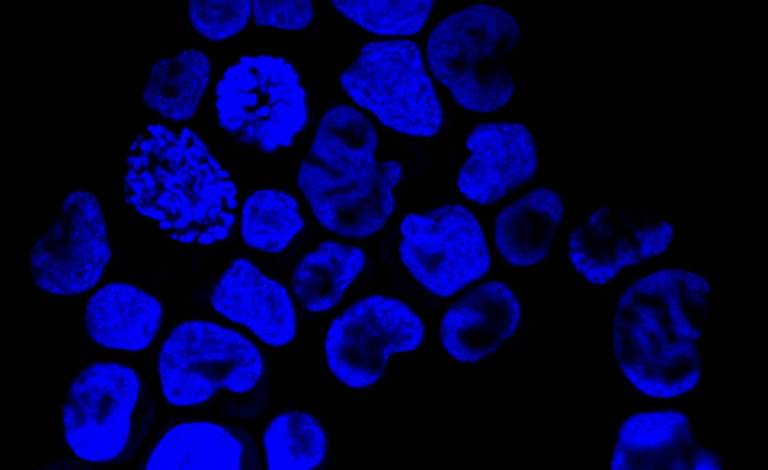Study reveals molecules responsible for ageing in immunity cells
19 January 2017
A recent study by the Akbar Lab and Dr Alessio Lanna discovered how to boost immune cells during the ageing process in both humans and mice.

Supported by the Biotechnology and Biological Sciences Research Council (BBSRC) and the Wellcome Trust, the study explored whether it is possible to reverse age-associated decline in immune function by inhibiting protein molecules, known as sestrins, which act upstream of p38 activation in T lymphocytes.
The study, published in Nature Immunology, found that sestrins have pro-ageing activities in T lymphocytes, identifying a sestrin-dependent MAPK activation complex (sMAC) in which sestrins simultaneously coordinate the activation of ERK and JNK. Disruption of this complex in older humans revealed an enhanced function of T lymphocytes, and in older mice it enhanced responsiveness to influenza vaccination.
The Akbar Lab produced a video discussing the paper in Nature Immunology on the role of sestrins in immunity and ageing.
Links
- Watch the video: Sestrins, Immunity and Aging (YouTube)
- Read the paper: A sestrin-dependent Erk-Jnk-p38 MAPK activation complex inhibits immunity during aging (Nature Immunology)
- BBRSC press release
- Profile: Professor Arne Akbar
Image
Human T cells showing nuclei (Credit: A. Walker, L. Sharp & J. Pryde. CC BY. Cropped from original)
 Close
Close

